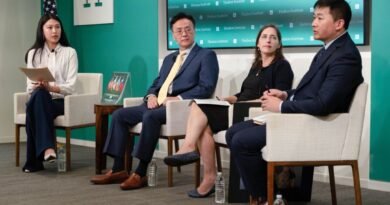Japan and Australia should enhance their cooperation in promoting democracy
The study emphasizes that infrastructure efforts alone will not be effective in countering malign influences without a simultaneous focus on democratic values.
According to a report from the University of Sydney’s United States Studies Centre (USSC), Japan and Australia should collaborate not only on military development but also on addressing coercion and anti-democratic trends in the Indo-Pacific.
The report, titled “Aligning Values and Interests: Japanese and Australian democracy support in the Pacific and Southeast Asia,” highlights the importance of promoting democratic values alongside aid and infrastructure projects to combat negative influences in the region.
While both countries have adopted a Free and Open Indo-Pacific (FOIP) strategy, they have been hesitant to directly support democracy, liberal democratic values, and democracy initiatives beyond elections in the region.
Lavina Lee, a non-resident senior fellow at USSC, notes that concerns about imposing Western values on neighboring countries have influenced the approach of both Australia and Japan. Meanwhile, the Chinese Communist Party (CCP) continues to expand its influence by supporting authoritarian regimes, promoting authoritarian values, and investing in infrastructure, further undermining democratic institutions.
The report stresses the urgency of preventing democratic regression and highlights the importance of countering Beijing’s influence in the region to protect democratic norms and institutions.
Ms. Lee advocates for more effective efforts from both Australia and Japan to directly support democracy as part of their FOIP strategy, which could also address poverty and promote sustainable development.
USSC CEO Michael Green highlights the need for the United States, Japan, and Australia to collaborate more closely in countering authoritarian influences in the region and preserving democratic principles.
Report Recommendations
The report offers recommendations for Australia and Japan to positively impact strategic competition in the region, such as supporting infrastructure investment based on Japan’s quality principles, challenging Chinese authoritarian narratives, partnering with democratic Southeast Asian nations, and enhancing coordination of democracy support activities with other allies.
The report also suggests creating safe spaces for pro-democracy activists, building capacity for civil society organizations supporting democratisation, and facilitating exchanges between Australian and Japanese parliamentarians.
Japanese Prime Minister Kishida Fumio and U.S. President Joe Biden have announced plans to collaborate with Australia on developing a networked defence system. The U.S. and the UK are also discussing potential joint projects with Japan under the AUKUS security pact to enhance defence capabilities.





